Like everything at Covey, these statements are living, growing alongside the community they serve.
Vision
We envision a world where communities are grounded in consent, trust, equity, and collaboration. In this world, all of us – including children – are honored as whole people with inherent worth and unfathomable possibility. Learning happens in relationship – with the land, with each other, and with ourselves.
Mission
Covey exists to nurture a self-directed, nature-connected, sociocratic learning community. We create an ever-evolving, intentional culture where every voice matters. We support young people in exploring their interests, growth, and connection. We create a space in which they can follow their curiosity, make meaningful choices that respect both self and community, and grow together in a culture of care, consent, freedom, and shared responsibility.
Values
- The soil we grow in is trust.
- Learning is natural and happening all the time.
- Play is powerful learning, and indispensable at every age.
- Young people are people and can be trusted to decide what and how they learn.
- The culture is the curriculum: how we are together is more impactful than the content being offered.
- We seek to actively accompany and support young people rather than control, mold, or discipline them.
- Multi-age learning has powerful benefits.
- Children (and all people) should have a voice in decisions that impact them.
- Consent-based, sociocratic governance is practiced at all levels of our community as a path toward collective liberation.
- Harmful systems such as adultism, white supremacy culture, classism, ableism, etc. must be unlearned.
- Equity involves accounting for disparities related to the generational impacts of racism, sexism, classism, ableism, etc.
- We embrace multiple diversities including but not limited to: LGBTQIA+ diversity, neurodiversity, racial diversity, ability, financial diversity, family diversity, religious diversity, and nationality. The “paradox of tolerance” requires us to limit intolerance.
- We are secular. No activities will be offered that teach or encourage any particular faith or religious organization.
- Conflict is inevitable and addressing it with courage, compassion, and accountability leads to deep learning and a stronger community.
- Community is both a practice and a path in this work.
Inspirations
Agile Learning Center principles
- Agility
- Infinite Play
- Amplify Agency
The Alliance for Self-Directed Education’s “Six Optimizing Conditions”
Self-Directed Education works best when the following conditions are present:
- Education is within children’s capacity and responsibility (paraphrased)
- Unlimited time to play, explore, and pursue one’s own interests
- Opportunity to play with the tools of the culture
- Free age mixing among people of all ages
- Immersion in a stable, supportive, respectful community
- Access to a variety of adults committed to young people’s rights
Tema Okun’s Anti-Oppression Work
We are aware that at the root of much oppression are the characteristics of “white supremacy culture” that make up the water we swim in. We strive to be aware of the ways this cultural programming shows up, brave in addressing it, accountable for our impact, and committed to repair and ongoing, embodied learning. You can find the full list of characteristics in organizations here, and background here. A few characteristics we highlight as particularly prevalent in educational environments are:
- Perfectionism
- Paternalism
- Individualism
- Fear of open conflict
- Quantity over quality
Principles of Sociocracy
- Equality: Every member’s voice has equal weight, and their needs are considered with equal care.
- Collaboration: Sociocracy fosters open communication and shared decision-making to empower individuals and teams.
- Consent: Decisions are made by consent, where no one has a paramount and well-founded objection. This differs from consensus, which aims for one perfect solution, and instead focuses on finding common ground that everyone can accept and revisit: “Good enough for now and Safe enough to try.”
- Transparency: All information is shared openly, ensuring everyone has access to the same knowledge for effective decision-making.
- Inclusiveness: Sociocracy strives to create a welcoming and safe environment where all voices can be heard and engaged.
- Empowerment: Sociocracy aims to empower individuals and teams to take ownership of their work and make decisions.
- Accountability: Members are responsible for their actions and contributions, taking ownership of the organization’s direction.
- Effectiveness: Sociocracy aims to ensure that organizations are effective in achieving their objectives.
- Continuous Improvement: Sociocracy encourages organizations to constantly learn, adapt, and refine their processes.
Elements & Core Principles of Emergent Strategy
by adrienne maree brown
Elements
Non-Linear & Iterative:
How do I/we learn from this
Fractal:
How we are at the small
scale is how we are at the large scale
Adaptive:
How we live & grow &
stay purposeful in the face of
constant change
Resilience & Transformative
Justice:
How we recover &
transform
Creating More Possibilities:
Where we move towards life. Where we shape tomorrow towards abundance
Interdependence &
Decentralization:
Mutual resilience,
shared leadership & vision
Core Principles
- Change is constant. (Be like water).
- Small is good, small is all. (The large is a reflection of the small.)
- There is always enough time for the right work.
- Less Prep, More Presence.
- There is a conversation in the room that only these people at this moment can have. Find it.
- Never a failure, always a lesson.
- Trust the people. (If you trust the people, they become trustworthy).
- What you pay attention to grows.
- Move at the speed of trust. Focus on critical connections more than critical mass – build resilience by building relationships.


